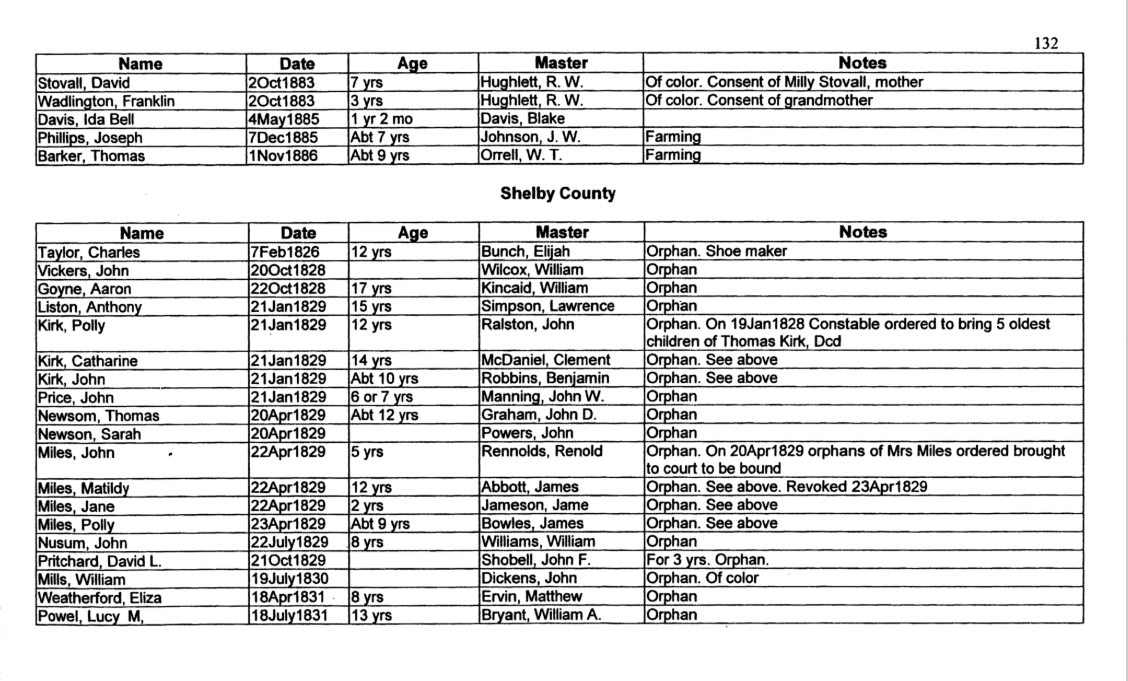Middle Tennessee's Forgotten Children: Apprentices from 1784 to 1902, the second volume of Tennessee's "forgotten children" contains more than 7,000 apprenticeship records scattered among the minutes of the county courts for Middle Tennessee. Spanning the period from 1784 to 1902 and covers 35 MIddle Tennessee counties: Bedford, Cannon, Cheatham, Clay, Coffee, Davidson, DeKalb, Dickson, Franklin, Giles, Grundy, Hickman, Houston, Humphreys, Jackson, Lawrence, Lewis, Lincoln, Marshall, Maury, Montgomery, Moore, Overton, Perry, Robertson, Rutherford, Smith, Stewart, Sumner, Van Buren, Warren, Wayne, White, Williamson, and Wilson.
West Tennessee's Forgotten Children: Apprentices from 1821 to 1889, also written by Alan N. Miller, is the third and final book in Miller's apprentices' series. This third volume contains over 4,000 apprenticeship records spanning the period from 1821 to 1899 and covers 19 Tennessee counties, including: Benton, Carroll, Crockett, Decatur, Dyer, Fayette, Gibson, Hardeman, Hardin, Haywood, Henry, Lake, Lauderdale, Madison, McNairy, Obion, Shelby, Tipton, and Weakley.
Originally, the English system had been designed to teach the professions and crafts; but in the colonies, it developed into a "system whereby children who were or were likely to become indigent could be supported without cost to the local government." Often these children were orphans or a child "whose father had abandoned him or utterly failed and refused to support him."
In the beginning, Tennessee followed the laws of North Carolina: Children were to be taught to read and write and were to be provided with food, clothing and shelter until the male reached the age of 21, the females to 18, unless "mulatto or mustee," in which case the age was 21. These were formal agreements recorded in county court minutes.
Each listing in the series includes the name and age of the apprentice - some as young as two and three-years-old, the date the apprenticeship began, the name of the "master" and notes which might indicate parentage, the fact that the young person was an orphan and / or the occupation the young person was to be trained in.

